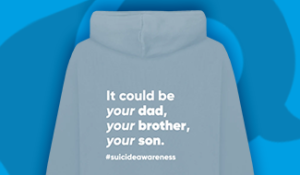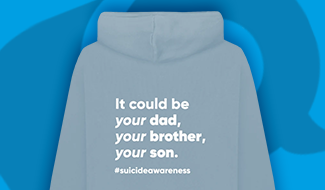Dealing with separation and divorce is difficult. Emotions are high and even if two people agree, the changes can be overwhelming and stressful.
Resolution believes the process of separating, sorting out finances and child care can and should be done in a way that minimises conflict and keeps the best interests of any children at the heart.
Resolution is an organisation of lawyers and other family justice professionals who are committed to following a non-confrontational and constructive approach to resolving family issues.
Resolution members agree to:
Listen to you, be honest and treat you with respect
Explain all options and give you confidence to make decisions
Help you focus on what’s important in the long term
Help you balance financial and emotional costs with what you want to achieve
Work with others to find the right approach and best solutions for you
Manage stress in what is already a stressful situation
Resolution has members across the country providing a range of services, from lawyers to financial advisors and family therapists, but everyone agrees to respect our Code of Practice when working to resolve your issues.
Resolution members and associates can be identified their membership logo. If you are looking for support with your family issue, please use our website to find a Resolution member near you.
OnlyMums and OnlyDads have partnered exclusively with Resolution to provide free consultations with lawyers and mediators through their Family Law Panel. This is aimed at helping you understand your options so you can make the best decisions for your family. All panel members are experienced and sensitive to the issues of domestic abuse, contact and working with grandparents, and many have special skills, including speaking different languages, to ensure you get the best support. In 2018, the Family Law Panel also launched a reduced fees scheme.
Divorce and separation: Finding the best options for your family
There is no one size fits all approach to divorce and separation. As every couple is different, there are also a number of options available, and some may be a better fit than others.
Lawyer negotiations – Both you and your partner appoint family lawyers who focus on your individuals interests. The lawyers then negotiate and come to an agreement, with outcomes often depending largely on what the lawyers expect would be the result of any eventual court process.
Mediation – By meeting with both you and your ex-partner, mediators can help identify those issues you disagree on and try to help you reach agreement.
Do it yourself – Negotiating your own agreement, with or without professional support, can be the cheapest way to a settlement and at first glance can seem the easiest. However, it can be a complex process with many aspects you and your partner will need to consider, and so it is not suitable for everyone. This approach can work for couples who have already agreed on how they’d like to divide finances and child care.
Collaborative practice – You and your partner each appoint your own collaboratively-trained lawyer and both partners meet with your respective lawyers to work things out face to face. Both of you will have your lawyer by your side throughout the process and so you will have their support and legal advice as you go.
If you and your ex-partner cannot come to an agreement through the above approaches, you may need to bring your case to court. Alternatively, you could look into family arbitration, where you and your partner appoint an arbitrator who makes a final and binding decision on any financial and property disputes, or some child-related issues arising from family relationships.
Common factors that influence people deciding how to get a divorce or separation are:
What would be the safest option for you and your children
Wanting to be in control of the decision being made about your family’s future
Whether your financial affairs are complicated and unclear
Being up against a powerful personality and not wanting to deal with things on your own
Believing you will need support to secure an outcome that is fair
Wanting to keep control of costs
Not wanting delays or a lengthy battle
Wanting an option that will bring certainty and closure
Wanting the process to be as painless as possible
Wanting to understand and influence what is happening
Whether you qualify for legal aid
Ultimately, each approach has its benefits and challenges, but your best option is to speak to a professional who can provide more specific information.
Posted on March 8, 2018















